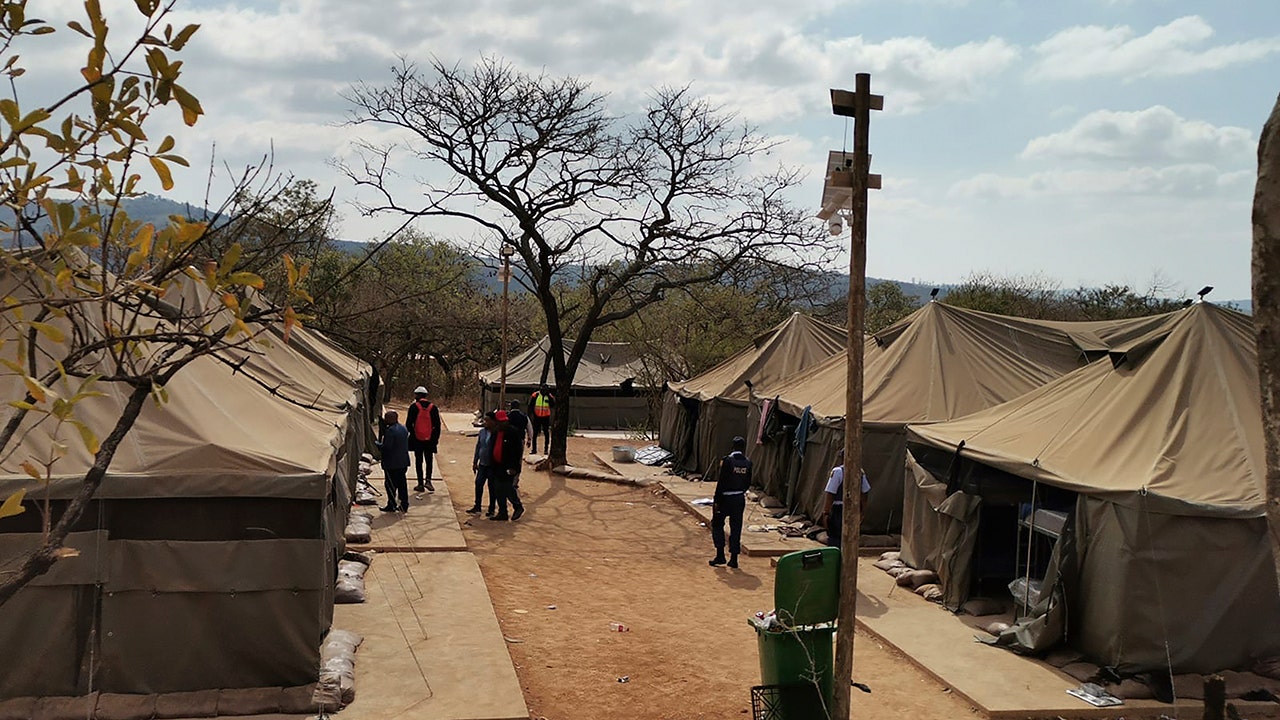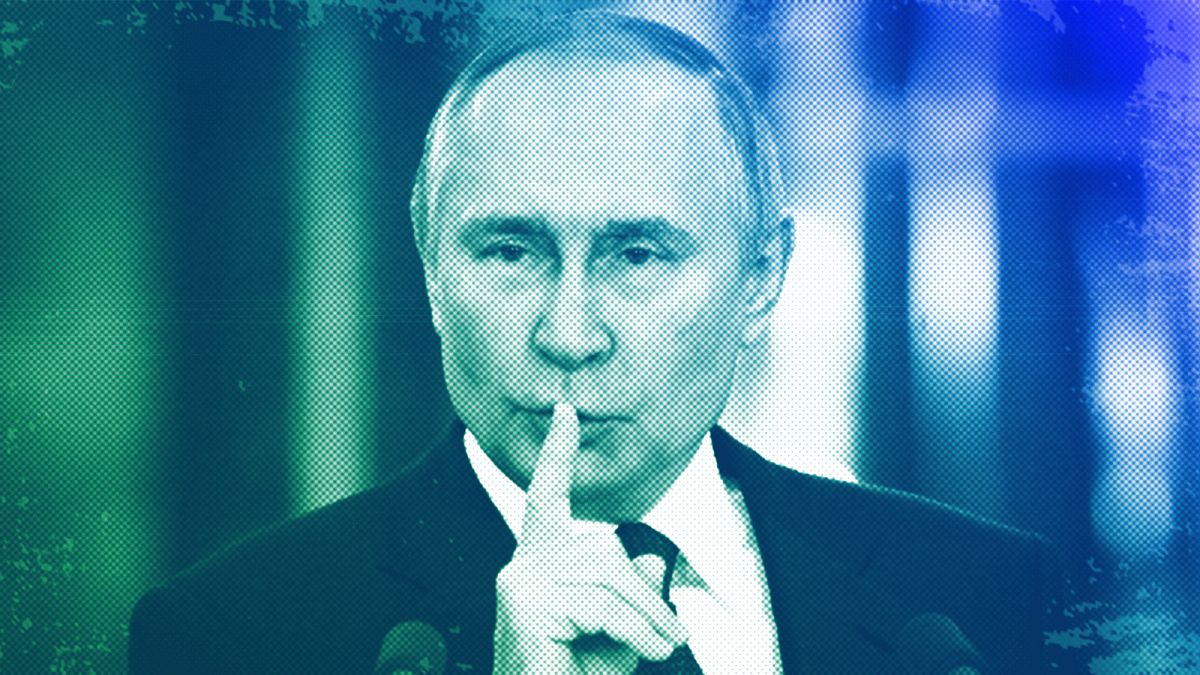World
EU sanctions extremist Israeli settlers over violence in the West Bank

The European Union has moved to sanction a handful of Israeli settlers responsible for attacks on Palestinian communities in the West Bank and East Jerusalem, following months of deliberations.
A political agreement on the move emerged among the bloc’s 27 member countries last month, but technical work has delayed its implementation, prompting many countries – such as France and Belgium – to unilaterally impose national sanctions.
Some 490,000 Israelis live in settlements in the Israeli-occupied West Bank, which are considered a breach of international law. Attacks on Palestinians in the occupied territory have surged since the outbreak of the war between Israel and Hamas last October, causing around 460 deaths, according to the Palestinian health ministry.
Four individuals and two entities responsible for settler violence will as of Friday be blacklisted under the EU’s human rights sanctions regime, meaning they will be banned from travelling to the bloc and their financial assets frozen.
The sanctioned entities are Lehava, a far-wing Jewish supremacist organisation, and Hilltop Youth, whose activities were recently halted by the Israeli Defense Forces for multiple incidents of violence and abuses against Palestinian civilians.
Two leading figures of Hilltop Youth, Meir Ettinger and Elisha Yered, are also targeted.
The move comes amid escalating violence in the West Bank, where tensions have deepened since a 14-year-old boy from a settler family was killed last Saturday.
NGO Human Rights Watch says Israeli settlers are displacing Palestinian communities by destroying their homes, and are responsible for assaults, torture and sexual violence against Palestinians.
The EU’s high representative for foreign policy, Josep Borrell, has previously said that settler violence is one of the biggest obstacles to future peace in the region since settlers oppose the two-state solution which would give statehood to Palestinians.
The bloc has also repeatedly censured Benjamin Netanyahu’s government for backing projects aimed at expanding settlements in the West Bank and areas around Jerusalem, and called for such decisions to be reversed.
In January, several members of the Israeli government joined a far-right conference promoting the construction of Jewish settlements in both the Gaza Strip and the West Bank.
The formal approval of the sanctions also comes as the bloc carefully calibrates its stance on the Middle East conflict following a rapid escalation in tensions between Israel and Iran.
Since Iran launched an unprecedented aerial attack on Israeli territory last Saturday, EU leaders have doubled down on their stance of solidarity with Israel but also urged Netanyahu’s cabinet to exercise restraint.
Some capitals, however, want Brussels to toughen its stance on Netanyahu. Spain and Ireland have led calls to review the bloc’s trade deal with Israel – the Association Agreement – to exert pressure on its government to exercise restraint in its Gaza offensive.
On Friday, Belgium’s deputy prime minister Petra De Sutter claimed Belgium would “take the lead” to “re-evaluate” the EU-Israel Association Agreement.
“We call for an EU-wide import duty on products coming from illegal Israeli settlements,” De Sutter said.
A note drafted by the EEAS – the EU’s diplomatic arm – last December urged the EU to “enforce continued, full and effective implementation of existing EU legislation and bilateral arrangements applicable to settlements products.”
Under EU legislation, Israeli products made by settlers should be clearly labelled as such and subject to less preferential customs arrangements, but the rules are not strictly enforced.

World
Celine Dion Makes Triumphant Comeback at Paris Olympics Opening Ceremony — Watch Full Performance

ad
World
95 Libyan nationals arrested in South Africa at suspected secret military training camp

South African police arrested 95 Libyan nationals in a raid on a suspected secret military training camp on Friday and authorities said they were investigating whether there were more illegal bases in other parts of the country.
The camp was discovered at a farm in White River in the Mpumalanga province, about 360 kilometers (220 miles) northeast of Johannesburg, police said.
ELEPHANTS KILL TOURIST IN SOUTH AFRICA AFTER HE TRIED TO GET CLOSE TO TAKE PICTURES
National police spokesperson Athlenda Mathe said in a post on the social media site X that the Libyans stated they had entered the country on study visas to train as security guards, but police investigations suggest they have received military training.
The Newzroom Afrika TV news channel broadcast pictures of the site of the arrests, showing a military-style camp with large green and khaki tents set up in a row. Dozens of men were seen lining up as they were arrested. They were wearing civilian clothing.
Local government official Jackie Macie said investigations were ongoing and the owner of the farm would be questioned. He said authorities received information that there were similar secret camps near two other towns in Mpumalanga province.
A camp where 95 Libyan nationals were arrested on suspicion of running an illegal military camp are seen lining up after their arrest on Friday, July 26, 2024 in White River, South Africa. Police say that 95 Libyan nationals were arrested on suspicion of receiving training at a secret military camp in the north of the country. (AP Photo/Bulelwa Maphanga)
The province borders neighboring countries Mozambique and Swaziland and is an area of concern for South African authorities with regards to illegal immigration.
Police and authorities have not said whether the camps are suspected of being connected to a particular group or conflict.
Macie said investigations would establish if there was a network of camps in South Africa and show “why they are here doing military training in our country.”
Police said the men may be linked to crimes reported in communities close to the farm in recent months.
“We have serious cases which have been opened with the police, including cases of rape and armed robberies, which complainants claim were committed by unknown foreigners who seem to be of Asian descent,” said police spokesman Donald Mdhluli.
“We take what we have found here today very seriously because we don’t know who was training them, what were they being trained for and why that training is happening here in South Africa. It may be a threat not only to South Africa but also to the entire southern Africa region.”
Police said the operation to arrest the Libyans and close down the camp began two days ago. Macie said the Libyan nationals had been in the country since at least April.
“The 95 individuals taken into custody are all Libyan nationals and are currently being questioned by the relevant authorities,” Mpumalanga acting provincial police commissioner Maj. Gen. Zeph Mkhwanazi said in a statement.
Mdhluli, the police spokesman, said the country’s security regulator had confirmed that the kind of training that appears to have been taking place at the camp was well beyond the scope of training for security guards.
“The kind of equipment we found here shows that there was intense military training taking place here. This was basically a military base.”
World
Passengers face long, uncertain wait at stations amid rail disruption

A deliberate fire in a signal box about 60 km south of Lille caused the disruption on the northern high-speed line, with traffic halted around 5 a.m. local time on Friday.
Travel was severely disrupted in Lille on Friday, one of the stations affected by the sabotage that hit major French rail lines ahead of the Paris Olympics opening ceremony.
Many passengers waited with hope that soon turned to resignation.
“We’ve been waiting since 10:38 a.m. for the 11:38 a.m. train, and now we’re just waiting for it to arrive at 2:08 p.m.,” said Delphine, one of the stranded passengers.
“It’s still quite a delay, and we’ll be even later since we’re on a secondary route. I work in Avignon at 9 p.m., so it’s going to be very, very tight. We have a concert tonight — will it even happen? This is all very confusing, and we don’t understand what’s going on.”
For one traveller, this was a rough start to the holidays. “The worst case would be if the train is cancelled entirely and we have to buy new tickets for next week. It would shorten our already brief vacation. That would be a huge problem,” said Hippolyte.
When asked if he had been informed of the delays, Hippolyte said he received the notification just before departure.
“At around 10 a.m. this morning, we were told we were an hour late and would be leaving at 1 p.m.”
“It just keeps getting later as the day goes on. Every time we approach the new departure time, it gets pushed back another hour and a half, or half an hour each time.”
A deliberate fire in a signal box about 60 km south of Lille caused the disruption on the northern high-speed line. Traffic was halted around 5 a.m. on Friday.
The recent acts of sabotage on the rail network highlight that the Olympic Games are turning France into a prime target.
The attack disrupted the transport system on the opening day of the Games, causing delays of up to two hours or even cancellations that affected hundreds of thousands of passengers nationwide.
Authorities in Paris have said they are deploying substantial human resources to counter any threats and to ensure the safety of the events.
-

 World1 week ago
World1 week agoOne dead after car crashes into restaurant in Paris
-

 Midwest1 week ago
Midwest1 week agoMichigan rep posts video response to Stephen Colbert's joke about his RNC speech: 'Touché'
-

 News1 week ago
News1 week agoVideo: Young Republicans on Why Their Party Isn’t Reaching Gen Z (And What They Can Do About It)
-

 Movie Reviews1 week ago
Movie Reviews1 week agoMovie Review: A new generation drives into the storm in rousing ‘Twisters’
-

 News1 week ago
News1 week agoIn Milwaukee, Black Voters Struggle to Find a Home With Either Party
-

 Politics1 week ago
Politics1 week agoFox News Politics: The Call is Coming from Inside the House
-

 News1 week ago
News1 week agoVideo: J.D. Vance Accepts Vice-Presidential Nomination
-

 World1 week ago
World1 week agoTrump to take RNC stage for first speech since assassination attempt


















